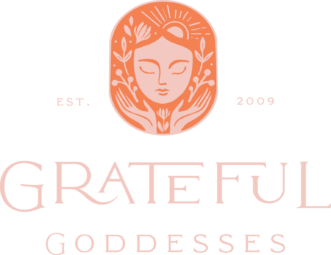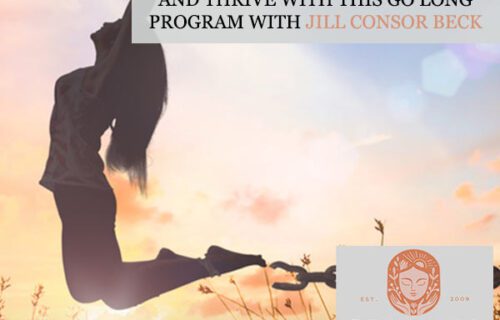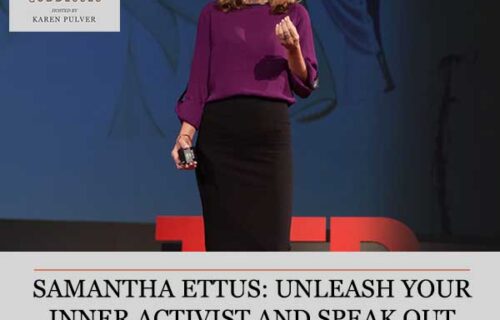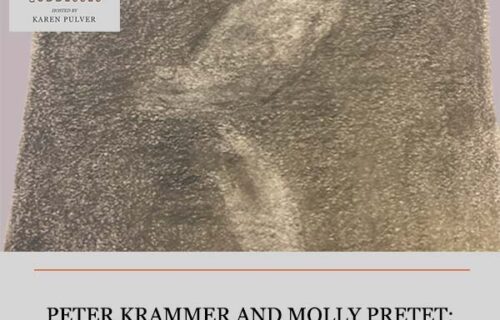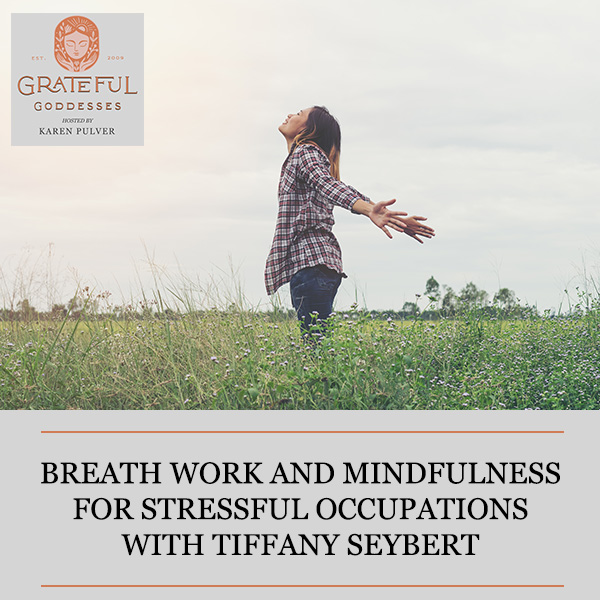
Breath Work And Mindfulness For Stressful Occupations With Tiffany Seybert
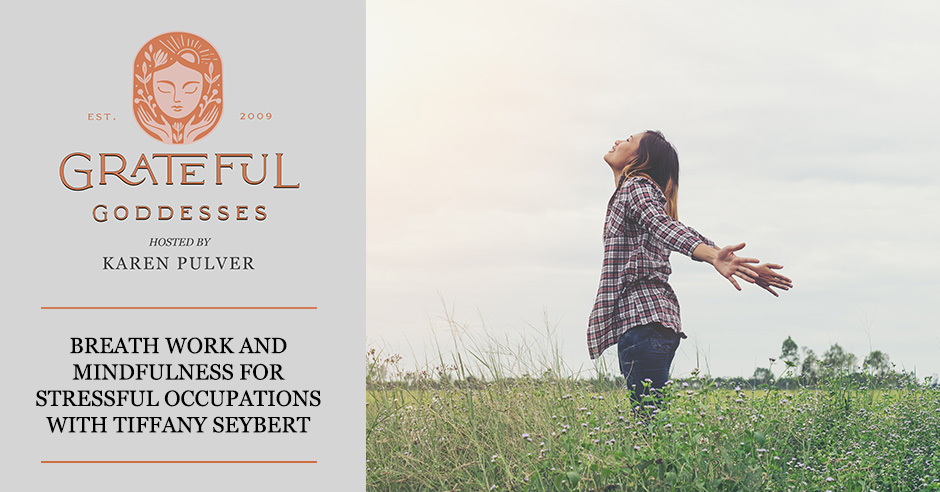
Stress can take over our bodies and create many negative effects for ourselves and others. Proper breath work allows you to bring your best and highest self to whatever situation that arises. Being present, in your center, and then enabling a calm, focused reaction is optimum, especially in a highly corrosive stressful job. The world is a crazy place and we all need to work for peace. We want to be able to bring people together to create peace, and this is not easy. Learning breath work will help bridge the gap between our mind and our body so we can have engaged, calm reactions to stress and not hold on to that all day. Yoga breath is scientifically proven to reduce stress. It works on the parasympathetic nervous system to stop the production of stress hormones that arise in a fight or flight situation. In addition, when focusing our gaze in the inner forehead while deep breathing, we activate the endocrine system which secretes hormones to help balance and calm us. This practice according to Tiffany Seybert, the Founder of Cop To Yoga, “never doesn’t work.” When we can come from a calm place to start, we can respond instead of reacting. Discover how calming our breath can help us in everyday situations, especially for police officers who are working in very high-stress jobs. Find a quiet spot and learn to breathe with Tiffany as she joins Karen Pulver and her Goddesses on the show.
—
Watch the episode here
Listen to the podcast here
Breath Work And Mindfulness For Stressful Occupations With Tiffany Seybert
Thank you for joining us. I’m glad that you’re here. You’ve shown up for Grateful Goddesses because it means that you’re here to learn, to continue on this journey of self-discovery and authenticity. Join us together and on your life path, your journey, discovering your passions, or you’re setting up your own Grateful Goddess groups, wherever you live and you’re gathering other people, women, men, whoever is there, like-minded with you to learn and discover, and try out new things. What I’d like everyone to do, wherever you are, if you’re walking stop, if you’re sitting you can sit up, put one hand on your heart and one hand on your stomach. I want everyone to breathe in through your nose and hold for two seconds and then breathe out with your mouth.
Think about how you feel. That was one breath. If we’re focusing on the breath, it helps us to calm down. As a preschool teacher, it’s hard to teach three-year-olds to calm down and to breathe. I wanted to show you, and if you’re reading, you can imagine that I’m lighting a candle. This is what I do sometimes with my class, I light a candle and from where they’re sitting in their big circle, I say, “Everyone, I need help blowing out this candle.” Everyone, take a deep breath in and then blow. A lot of times from where they’re sitting, it’s not going to blow out. It’s good practice because it allows them to breathe in and out. Sometimes I’ll say, “Hold the breath and then breathe out, breathe harder. Breathe stronger.” Eventually, we blow out the candle.
When we’re walking around in the school, if I find that the kids are getting riled up, excited, anxious, I’ll say, “Here’s my candle. Pretend to blow out the candle.” That’s in a way a little form of meditation for three-year-olds. For adults, it’s sometimes hard to remember to breathe. Those types of little visions that you can use, you can light a candle and breathe. Now, we’re going to find out actual techniques that will help you so that you can calm down, you cannot have that knee jerk reaction especially if you’re in a high-stress job, even being a mom is high stress, walking down the street especially with what’s going on, you might feel angry, riled up, you need to stop and breathe.
I want to introduce our guest. I want to read a little bit about her. Tiffany Seybert joined us years ago at some Goddess Events. She led a yoga event and it was incredible meeting her. She’s an amazing woman. I haven’t spoken to her for years, but it’s absolutely astounding what she’s been working on in those years. I reached out to her and she’s here now. Tiffany Seybert has lived in Chicago since 1985. She has Advanced Kundalini yoga teaching credentials and has taught publicly and privately for fourteen years. Her education and professional experience are in International Business, Music, and Liberal Arts. She founded Cop To Yoga Peace Force Incorporated in 2015 as a community-based peace initiative, which brings community and police together in trust and shared concerns. Cop To Yoga unites volunteer yoga teachers with their local Chicago Police districts to guide officers through seven minutes of breathing exercises in the roll calls. Her work neutralizes stress and provides immediate resilience and balance.
Think about that one breath that you took and how you felt. We’re going to learn more about seven minutes and how that will affect you for your whole day. The program has relationships with 17 of the 22 Chicago Police districts. Seybert was a featured panelist in the 2019 University of Chicago Crime Lab/CPD Wellness Summit, specifically focusing on resilience as one of the results of the work Cop To Yoga is doing in this city and suburbs like Cicero, Park Ridge and Evanston. She was 1 of the 2 delegates from the 24th district, who was sponsored for the Chicago Police Department Citizens Police Academy in November 2019. She was also a facilitator for ADL’s Managing Implicit Bias course as part of the CPD procedural justice training. Welcome, Tiffany, come join us. We want to hear about all you’ve been doing in the past years and what you can teach us.
Thank you for your kind words and invitation. Sunday mornings are one of my favorite times. I’m jumping the gun on that. It’s a beautiful day, so it’s great to be with everybody.
Thank you. I want to ask you because it’s been years since we’ve seen each other and since I’ve heard about all that you’ve been doing on your journey. Can you share with us a little bit about what you did in Chicago a few years ago when you came to the Goddess Events and what you’ve been working on now?
I was still in my career as a banker and I was an executive managing people, and I was going to music school at the same time, and I did my yoga teacher training in 2006. Back in late 2015, the violence in Chicago was national news every single day. It started with the Laquan McDonald’s tape. This is when things seemed to break open here. I’m on my mat one morning and I thought we’re asking the police to do more and more for many reasons. Social programs being defunded, that falls to the side. I thought Chicago Police need to do yoga. This is going to help them so much. I called my local station later that morning, we talked a little while and he said, “This sounds great. We need to get you over here.” I said, “Let me know.” He said, “Can you come now?” I said, “I’ll be there in ten minutes.”
That was the beginning of what ended up being for me a lab to evolve this work. It originally started where we’ve got folks on maps changing out their clothes on their lunch hour sitting for 40 minutes. The program was soft, awesome postures. The focus was always on breathing. You’re sitting in a comfortable posture and we’re doing the breathwork. The breathwork was a lot. I want to think it was almost a lot more than we’re doing now because we would do breathing in every asana. We would also do some mudra to getting our arms moving and breathing with that. That’s how we started, but it became obvious that no one had time for that. Police have pain and alignment issues. The vests that they’re carrying with all of that stuff on it weighs about 20 pounds.
It’s like carrying a baby.
You have that, plus you’re sitting in a car most of the time. It’s difficult from a physical perspective and the stress of it all is a challenge. Part of what happens with the police, they’re dealing with the unknown and unknowable all the time. That in itself is stressful even if you’ve got a shift where you’re driving around for eight hours and nothing is going on. Bringing your best and highest self to whatever the situation requires is huge. A bank robbery is different than a domestic dispute or a loud dog barking. You get the idea. Bringing the skills that are appropriate for these situations is huge. Being in your center allows you to be present.
It’s helpful to anyone and any type of high-stress situation.
We’re all dealing with a lot of stress these days. It’s a nice way to start your day. We do three different breathworks with the police. The third one is similar to what you do with your kids.
With the candle?
Breath work lowers blood pressure and heart rate, and you will feel the calm come over you. Share on XYes. It’s a variation on warrior breathwork like you’re pausing for the count of four and then exhaling out of your mouth for the count of five. Police know that particular exercise as combat or tactical breathing. It is part of military science. Not that I own a gun or ever will, but that’s an exercise that if you’re a sniper, this is the thing that it builds a cushion around you of calm. Within that cushion, you are alert but relaxed. It sounds like, “If I’m relaxed, I can’t be effective.” You’re the most effective that way. This range down into some tune. I tell my students that the warrior breath is a great thing to do before you get out of bed in the morning. How many times have you gotten into bed at night and you ask yourself, “What have I done for myself today?” You’re like, “Not a whole lot.” If you’re in that kind of job, it’s like you’re on the plane. You’ve got to put your mask on first so that you can be 100% and then you’re in service to others.
Now, a physical mask as well because of COVID, but the analogy of being in a plane and taking care of yourself applies to everybody, even if you’re not in such a high-stress job. I’d like to bring on our Featured Goddesses now. What I’d like to do is introduce you to them. There’s Alyssa, who’s joining us and Rachel as well as Dena. I wondered, I know that you do seven minutes, but for the show, would you be able to do three minutes with all of us as well as our audience? We can talk more about the actual breathwork, benefits and scientific research behind it and then incorporating it into the Cop To Yoga.
Is everybody ready? Are we ready to go?
We need to sit comfortably.
What we’re going to do here is sit nice and tall, feet or hip with the part and you feel yourself being grounded and supported by the floor. Your hands are palm facing down on your thighs. Our bodies are subtle that with the palms down, we’re getting a deeper breath. If the palms are facing up, you’re not getting to the bottom of your lungs. Close your eyes. If you’re outside and you stopped, feet or hip apart, your knees are nice and soft so we feel supported. You can lean on something, and it’s nice because then you don’t have to worry about feeling lightheaded and fall over. Feel supported whether you’re standing or in the chair.
Eyes are closed and relaxed.We’re going to begin to inhale in through our nose and exhale out of our nose. We’re inhaling and exhaling in and out of our nose for three minutes. We begin breathing into the belly, chest, neck, head all the way in and up and exhaling nice. Inhaling as the belly expands, when you watch a baby breathe, belly rises up and goes down gently. Let’s keep doing this because by now, you’ve noticed that your breath has already deepened and allow your breath to feel like it’s a rollercoaster car going up on the inhale. You’re on a long narrow oval and at the top, noticing this piece of silence and stillness at the top of your inhale and at the bottom of your exhale. Allowing this natural rhythm, the rising and falling of your breath to take place.
As you’re doing this, you’re lowering your blood pressure, you’re lowering the heart rate, you’re re-oxygenating the blood cells and you’re feeling the calm come over you. While you’re here, let’s take it a little bit deeper. Your eyes are closed. From the inside out, go ahead and lookup. Look up to the spots in between your eyebrows, a little bit higher than there. Allow yourself to feel your optic nerves engage and that little tension will dissipate momentarily and we’re breathing deeply in and out through our nose. Breath is nice and deep and you’ve got to breathe over on your own. By creating a gaze to the middle of the forehead, we’re activating the parasympathetic nervous system, our endocrine and nervous system. The optic nerves are pressing against the pituitary glands, our master glands.
The pituitary gland presses against the pineal gland. The pressure of the gaze forces these glands to secrete. If you can imagine pressing on a beautiful, juicy fruit, your gaze is doing that. Your breath continues. With these together, it’s adding up to something that’s greater than the sum of its parts but you’ve activated these subtle bodies, your nervous system, endocrine system and parasympathetic nervous system. This is a workout for your inner systems. Keeping them healthy and then bringing them back to life. You notice how great you feel. You may even see color while you’re looking from the inside out. The color of that chakra is like a deep indigo color.
You feel yourself coming together holistically, organically as one aligned person. Aligning all of the bodies, your mental body, physical body, emotional body, subtle body, auric body, and coming to center with the power that naturally resides within you. Part of the reason why it doesn’t sound familiar, we weren’t taught this as children. People say this is weird. Anything unfamiliar is weird. Depending on your openness to it, I don’t think I need to tell anybody who is present here how much you feel different than you did a couple of minutes ago when we began. Feel yourself, let your shoulders rock a little bit, roll back and forth, and you feel that beautiful tingling sensation in your body. As you wiggle around getting all of this nice, fresh oxygen into all those nooks and crannies, every cell.
If you’re holding tension in your shoulders, your back, wherever you hold tension, send the breath there on the inhale. Allow that to release as you breathe in consonance, you breathe in peace and calm and exhale that tension away, exhale any feeling of judgments and doubts. We are limitless. We’re only limited by our beliefs. We’re human beings, we’re mammals, we are the only mammals that have the power to control our breathing and to change our minds. We’re powerful and we’re able to use that power for good, for good for ourselves and for others.
As we are a bright shining light in this world, we’re a loving presence and a peaceful presence, breathing like this allows us to get to ground zero of that and remind ourselves that we can take a minute. Even if it’s 60 seconds, you’re at a long stoplight, your mind is behind someone that wants to write a check at the grocery store and you’re ready to kill them. Instead, you choose to breathe because that stuff isn’t important in the big scheme of things. You’re going to get to the checkout line, get your stuff, and it might end up being a great experience. You’ll never know, but this allows us to be open to what it is and that’s it. During the day, you feel stressed, you feel your shoulders coming up to your ears, certainly in the wintertime when we’re all walking around with our shoulders up to our ears because we’re cold. Taking the time to breathe is one of the best things we can do.
No one needs to be flexible to do it. You’re able to do this. Walk on the sidewalk. Anybody, everybody has this power. We’re all powerful people. Sometimes that’s frightening. I’m working with the law enforcement population. There are officers that will say, “I’m too much over this. This is not for me.” I tell them, “Look at your willingness and the power. Here’s a whole bunch of power you’re not using.” It always works, it never doesn’t work. The power of a positive and the power of even a double negative as being underscoring the power of this. This always works. Take another couple of nice deep breaths.
Let’s breathe all the way in and up and at the top of your inhale, pause for a moment, and let’s exhale nice and vigorously through her mouth. The abs pull in a little bit at the bottom and again, one big nice deep breath all the way in and up at the top, pause, then exhale through the mouth, letting that go. Last time, big inhale, pause a little bit longer this time and a huge exhale. Allowing yourself to come back to centrum returning to your natural breath, opening your eyes. At this point, I remind the police that we all have the right to remain silent and connected to this piece wherever we are. Great job.
How does everyone feel?
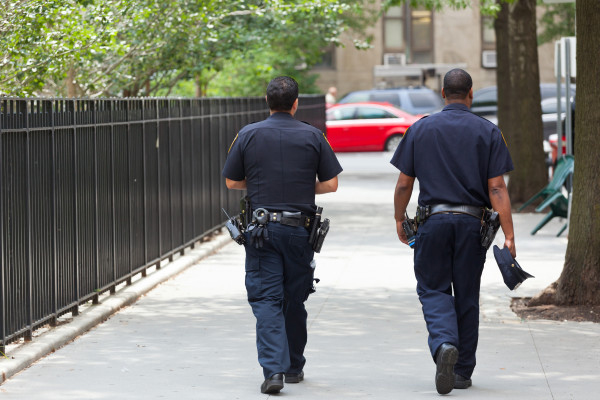
Good.
Different?
It’s simple. We start out with long, deep breathing. I did a bit of a hybrid for everybody because that’s powerful. We do longer breathing, start three minutes. We’re inhaling and exhaling through our nose and then we take it deeper. What we did with our gaze after a long, deep breath for three minutes, we continued a long, deep breath for two minutes, but we block off the right nostril or long, deep breathing into the left side. We can try that if you’d like it since our breath is still deep. Do you want to do that? Same thing, ladies. Your left hand is palm facing down on your left thigh. Your right hand is blocking off the right nostril. We’re going to start to breathe deeply into our left side and let it take the time that it takes.
You’re using half of your apparatus and your breath is deep now. Let it take the time it takes to breathe all the way in and up and then out. Do one more, all the way in and up and out. Go ahead and bring your hand back down to your lap. Roll-off your shoulders a little bit. You feel that nice tingle. Does everybody feel that or is it just me? What that does is it takes the breath deeper and if you add the gaze, you’re shifting into the deeper downshift into calm. You’ve got a stressful situation coming up, you’re giving a presentation at work. That’s maybe not stressful for you, but you’re not normal if you don’t feel a little bit agiler when you’re going to be speaking in front of a bunch of people, but it can be anything.
A tough conversation with someone you love, a conversation with your teenager or three-year-old. These require different skills. Asking yourself and preparing yourself for these conversations is huge. Asking yourself, “What does love call me to do at this moment?” Telling yourself, “Can I open my heart a little bit more? Can I see the innocence in this person who’s sitting across the table from me? Can I transcend?” That pushes us outside of our comfort zone like deep breathing does as well. That is the deep downshift into calm. It does wonders. If you add the gaze, it’s great and then we go into the third, which is the big deep inhale for four, then pause for four. Huge exhale out of the mouth for five, holding it out for three. What this does is build a Krishna aura in you. All of it does. I’m a pianist, so I’m on stage giving a performance but I’m backstage doing left nostril breathing before I go on stage.
You don’t cover the left nostril and breathe out at the right. It’s only covering the right breathing out of the left.
You’re breathing into your left side.
You don’t balance it out.
No, you don’t because we’re going for calm here. This is the curriculum that we’re using and we’re going for calm. If you do want to breathe into your right side, this is great energizing breath. When your clock goes around, you want another coffee or something.
The left is calming and the right is energizing?
Correct.
I did not know that. You held up your card. I know that the exercises are on the back of your card. You give that to officers to take with them throughout the day. I know that our Featured Goddesses thank you for doing that, Tiffany.
You’re welcome.
Our Featured Goddesses have some questions for you to dive deeper into what you do and what you practice. Alyssa, did you want to start?
Being in your center allows you to be present. Share on XTiffany, that was a great exercise. It seems difficult if not impossible to have any real hard data about what you’re doing with the Police Department and what positive effects that’s happening. I would assume you’ve collected a lot of anecdotal evidence over the years. Can you share any specific stories or anecdotes that you’ve heard back from the officers?
To your first point about evidence, it’s like people don’t believe it unless we’ve got hard data and it’s initialized. Number one, you all feel better, do you not? It’s experiential. No one needs to tell you, “You feel better or you feel worse.” You know and you know your own body and mind. There is that. The police tell me, “I feel more relaxed.” When you’re in fight or flight, this is coming to your service as well. Fight or flight, the sympathetic nervous system versus the parasympathetic nervous system, the balancing power of our nervous system. Police said, “It prevents me from going into having tunnel vision.”
Tunnel vision comes to your aid when you’re chasing the bad guys. You’re honing in on it. If anyone has ever been almost a victim of a crime or if someone is chasing you, unfortunately, that happened to me one day. I’m walking home from the train and someone was trying to steal my purse, and you go into it. If everything goes black and white and you’re in survival, that’s what happens with police. I did get a call from an officer. I don’t know if anybody remembers. Tragically, two officers were hit by a train. When at South Side, it was in the 5th district. They’ve been called out and someone said, “We think someone has a gun.” They went out and I don’t know how it happened but it was a tragedy and beyond.
One of the officers that were called out to that scene said, “When I was called to that scene, a scene like that will blow your circuits completely.” He said, “I remember when you came to our station and you taught us this breathing.” I started grieving, I sat and was breathing then all of a sudden, I felt myself coming back. I knew that I’d been called out and I needed to go. This brought me to a place where I could take action again because he was like anybody would be, you’re stopped in your tracks. Hearing those kinds of stories is amazing. The Sergeant that pulls people over says, “Let’s take a few breaths together and then we’ll talk about what you did.”
Erasing those lines and saying, “We’re two human beings here. I happened to have a police officer uniform on, you don’t. It brings people together.” When your mind has been expanded with the new experience, it can’t go back. You can’t shrink your mind. These are things that are tools that officers can use wherever they are. I’m humbled when I hear those stories that they remember some of these techniques that we’ve taught and they’ve come to be in service to them. Those are some of the things.
I’m sure there are many more too, but thank you for sharing.
You’re welcome. One of my volunteers and I went outing with me at 5:30 AM roll call at 74th and Cottage Grove. It’s 25 miles from my house and we’re in the city. After our roll call, one of the officers, a woman, stayed back and she said, “I was going to come into work, I couldn’t face it at all. I had no idea that you were going to be here.” She’s starting to cry. She said. “It was a year ago that my husband.” Someone broke into their house and killed her husband with a gun in front of their children. These things I can’t even fathom. She said, “I didn’t want to be here. I feel better now.” We were in a group hug at that point. The work that we do pushes us outside of our comfort zone every single time.
There’s no way for me to predict that something like that is going to happen. There’s no way for me to predict that it’s going to have a positive effect on somebody. It ends up having a positive effect even to the people who say, “I’m not going to do this,” either they ended up trying it. As we know, it’s experiential and you go, “I feel better. This is helpful.” They hear it and they don’t want to do it in front of other folks. They try it on their own at home. Even with the guy that had his finger in my throat saying, “This is BS,” he didn’t use those two letters. That person not only stayed because this is all voluntary.
I was wondering if that’s part of roll call. It’s voluntary.
You can leave if you don’t want to do this, that’s fine. They’ll look at your phone for another seven minutes. You could be using these seven minutes for you but it’s your choice. That person that said this is nonsense stayed the whole time and looked around at everybody. My heart went out to him because he was obviously agitated and could not even sit still. For him, maybe he tried it at home or he didn’t. He could have gotten up and left but he was curious.
You at least showed what it was like. Hopefully, he used it at some point.
Having clarity of intention walking into a position that needs to be there.
Does it become muscle memory in effect? When you practice doing this a lot especially at roll call, then throughout the day, when you remember, “I’m going to breathe,” you automatically get into that zone or faster.
It’s one of those things that if you’ve never done it, it’s not part of your day or routine, you’ve been introduced to it. Part of it is remembering to breathe, which is why I like to give the cards away. I say, “If you’re not using the car every day, leave this on the visor, so that if someone is using the car can say, ‘Let me remember to breathe. There it is.’”
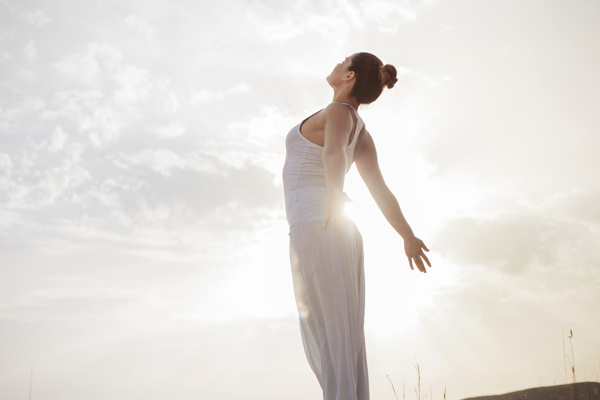
Dena, do you have a question for Tiffany?
I do. You have addressed with Alyssa’s question, but as I was sitting here thinking it seems certainly obvious and it’s a movement that should move out of Chicago. Are you bringing it elsewhere? Are other places doing it? Are heads of police talking amongst others in other states and implementing this program? We need it everywhere.
The awareness of our ability to have this effect on ourselves. When you come into a room and you’re a peaceful person, you have that effect in your environment.
You’re in 17 out of 22 districts. Has that increased?
It increased to seventeen. We started in 1 and it increased to 3. What is it that I can tell you within your question, Dena?
A Police Department everywhere, not just in the City of Chicago, needs this program on a volunteer basis. I would say that other yogis in the world would want to participate and make this change now but from the past as well. Are you doing anything to move the movement out of Chicago and help others?
I get calls from everywhere especially in the last several weeks where people feel called to say, “I need your help. The world is a crazy place and we need to create peace. We need to work for peace.” Karen said that we do work in Cicero, Park Ridge and Evanston. I’ve had volunteers call from Arizona. Some of my volunteers have moved. One of them is in Oakland. One of them is in New Mexico. They want to bring it there. I have to tell you, it’s a tall order because either the people that say, “I feel called to do something,” they get distracted and I never hear from them again. I said, “Give me your number. Let’s talk now or whenever you want and I’ll share everything with you.” They never call.
On this resilience panel that I was on for the Wellness Summit, the former assistant chief of police from Los Angeles was the one who contacted me to say, “I want you to be on my resilience panel because this is the work that creates resilience.” Within the Chicago Police Department, we are under a consent decree. Part of that consent decree mandates for wellness. It mandates that the city is responsible for the health and wellbeing of officers. Programs like this contribute to that, so they can check the box, “We are taking steps to make sure that our officers are practicing techniques that contribute to their wellness.”
It’s not just eating good food and making sure that you sleep and all these things, it’s not nice to have. To your point, this should be everywhere. At this point, the Peace Force was a nonprofit but we’re not funded yet by anything, not by grants or a city program. Working toward that so that this can be something that’s happening 100%. I’m one person and the volunteers are great until something happens, “This sounds more fun. I can’t go to teach because I’m going to go meet my friends for drinks or something.”
The awareness and it’s spreading the word organically, it can attract more people to do this.
What you’re saying is huge. Our breath is the bridge between our mind and our body. Going into the next situation, what we were saying like with the police, a barking dog is way different than a bank robbery. You’re bringing different skills. I tell them, “When you’re done, do some long, deep breathing. Bring yourself back to center. You’re done with that now.”
You can carry it on with you for the whole remainder of your day.
That’s it because you’ve got all of those stress chemicals placed in your system. You want to balance that by activating your endocrine system. Bringing the chemical structure away from the stress hormones that flood your system during fight or flight, and starting the production and flow of the chemicals of calm, the dopamine. It’s huge to transition. I tell them that if you’re not going to breathe your whole day, it’s most important that you breathe when you pull into your garage or something and take that time to get ready to walk into your home. You’ve got children, you’ve got your wife, you’ve got a whole different scene. You think about that.
I don’t know if anyone got aging parents, you’re in the hospital and you see these nurses with their carts going from room-to-room. They’re like a mini police station. They don’t know. This person has got heart problems. This person has cancer or something like that. This person is only here for a couple of days. You’ve got all kinds of issues, families or people. God help the person that would ever have to deal with me in a hospital because I’d be trying to escape it every moment. I’d be like, “I’m out of here.” They need to also bring themselves to the center so that they can deal with whatever it is. I did a nursing event at Northwestern. These guys are doing the heavy lifting. Your parents were in the hospital, aren’t you cooking for these people, bringing them food and taking care of them? They’ve got it but people that deal with corrosive stress on a daily basis, this is not a nice to have. This is something you’ve got to have.
If we are good for ourselves, we are good for others. Share on XIt’s even more needed. Rachel, what did you want to ask Tiffany?
It’s amazing how you were practicing, came up with this idea of affecting change and what you could do to affect it. As you’re talking about volunteers, people get motivated, they have ideas, they want to do things, and you did it. You created this organization, you’re still doing it, you’re doing the heavy lifting like you’re the one going at 5:30 AM, 25 miles away. It’s not like you’ve assembled your team. You are totally engaged. I am impressed by you. It’s amazing what you’ve done and you’ve found your light and your gift to the world to have affected thousands, I don’t know how many people, but many obviously.
We’ve had about 3,000 participations.
That’s amazing.
Thank you. That’s kind. When we started out, we know we’re limited by our beliefs. For some dumb reason, don’t ask me why, I never thought this would be hard. Going into something, we think, “This is going to be hard. How am I going to do this?” I didn’t think it was going to be hard. I was wrong, but it was too late and quitting was not going to be it. Evolving it was going to be it. We’re on the precipice now of many things that it’s time to reinvent as well. We’re always doing stuff. I run into cops all the time and they’re like, “You know that word yoga?”
They were like, “We want you to help us create a program where the word yoga isn’t even in it.” I was like, “Perfect.” The chief of police is a yogi. He’s amazing.
There’s resistance, it’s like a change, it’s something different but if you coined it as something not yoga-related but it is people, people will try it.
Words are important as we know, and the word yoga means union, yoke. Bringing things together, joining people together, joining a community, and police in trust and shared concerns. Being able to breathe together is nice because we’re all human beings there. You’re not a plumber, teacher, account manager or officer.
Everyone has knee jerk reactions no matter who you are and where you are. Have you guys experienced knee jerk reactions where something happens, especially road rage or someone cuts you off? Think about your day, even from the moment you wake up. How do you go about your day? Sometimes I keep having these knee jerk reactions. How important is it?
It’s tough. We want to have a thoughtful response. We don’t want to just react, we want to come from a calm place so that we can respond.
How often do you go and do this with the police department? Is it one and done? “Here’s the information.” Hopefully, they practice it or do you check back in?
Now, we’re unable to do anything. With COVID, the people that are at the police station are either there getting arrested or you have to file a police report or something. I ended up seeing police all around, so I’ve started doing advice yoga. We’re in a parking lot, on sidewalk, street and I see the cops, especially in my neighborhood, and then even venture out all that much. We’re all in the house and I work from home. They say, “We need you. Where have you been?” “Hi yoga lady. Someone is out the window.” It’s adorable.
I know that they see the benefit of it. Some of the districts like the 5th District for instance, I’ve been there once and the man that said, “I remember when you came in, it helped me.” To some of them had been only once because it is a constant chase. It is relentless. I don’t know why wellness itself isn’t one of the number one thing that needs to be uppermost in their minds. We should be calling and scheduling in all of the districts, but this isn’t happening because it’s not sinking in with a lot of the people that are on the ground. You talk about it and they say, “We want to be relaxed and managing our stress.” Some districts say, “We don’t have time,” which it’s never an excuse.
How do you not have time to make sure that you’re all together and that you’re present before you hit the streets and dealing with the public? There are some districts like that. Some say, “We don’t even have seven minutes. I need to get my guys out on the street.” Some of those districts, I’ve only been there once and I act like it. You’ve got to own it. It is a difficult population quite honestly. We’re sticking in yoga classes in everybody’s home. This is different. It’s a bit of drill sergeant yoga.
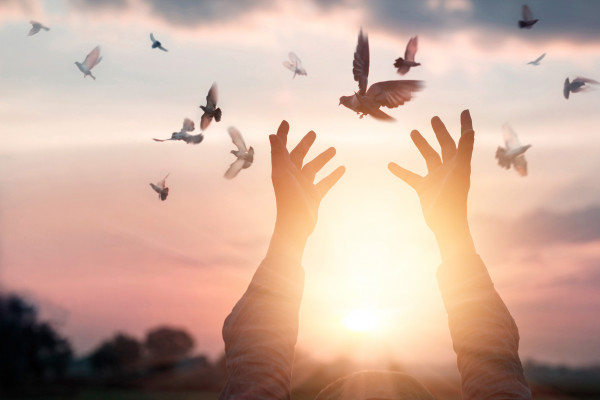
What are your future plans?
We’re reinventing a little bit. As we know, we’ve seen the value of this work. We’ve seen our police officers get bogged down by more and more that they are asked to do. As we defund mental health programs, people are on the street possibly having some psychotic episode or whatever it is. The last thing that person needs is to have someone pull up and they’ve got a gun, those kinds of things. Working together with people that I know on the superintendent’s advisory panel and working together with the senior leadership of the CPD to say this needs to happen and this needs funding, which is a commitment.
When things are free, you don’t value them. I’ve found out certainly with my own program and with volunteers, valuing the resources, time and making a commitment. I think everybody here in this room and those that are reading know that nothing happens without commitment. If you commit, that’s when things are going to take place. If you’re building relationships, it can’t be one-sided. It takes two. It’s me and the 20th district. It’s me and these other districts. It’s tough but then we’ve had other districts. I’m there on all shifts in the 20th, the 24th, 3 and 9.
You’re going to keep forging forward. Perhaps you can open up to other industries as well. I know it’s important for police officers, but also other industries.
I take this as its people. If you’re in a high-stress job, certainly but anybody. This is a great way of bringing your highest and best self. Preparing yourself to create an environment for learning that you teach. Transitioning those things and creating an atmosphere of calm and peace. De-escalation is the key especially in a volatile situation. We’ve all experienced this here on this show. You’re able to be in your center and use the tools that you need to bring to whatever the situation is. De-escalation is the number one thing. That is what police are trained to do, de-escalate the situation on this whole spectrum of use of force if you will. It’s the last thing you want to do is pull out your gun. I’ve spoken to officers who’ve been on the force for 30 years who have never once pulled out their gun. Using the tools that you have to connect heart-to-heart, human being to human being. How can you be in service if you don’t understand that? There is that.
One of my sergeants who says we’re going to breathe together as he’s standing at the window after pulling somebody over for speeding. De-escalate, “That’s it.” What effect does that have? It does bring instant peace. Bringing tools of peace to wherever you are, that’s what you need to do. De-escalating is the number one thing. Fear is a big deal. I was talking to one of my volunteers and I shared with her that I started crying about George Floyd. She’s like me, we’re fearless, we’re not scared of the police. I don’t know why but we are not scared of the police, versus the general population, there’s a lot of fear there. I said to her, “I know that we would have been able to help because we would have been walking up with our cards saying, ‘Here we are. We are Cop To Yoga Peace Force. You know that you’re going against your training. You need to snap out of it. You need to start breathing. You need to come back and we would have walked right off.’”
The fact of the chokeholds stopping people from breathing, I know this is a heavy conversation.
It needs to be spoken about because why are we afraid? There’s that question. I don’t know if we’d have been on the scene that we’ve been able to have a different outcome. That’s certainly my hope. I felt that had there been someone from Cop to Yoga Peace Force there, maybe we would have different results. I don’t know. Not being fearful, being fearless, it always pushes you outside your comfort zone.
Do you think your whiteness was something that allows you to be on no fear? I know this is tricky.
I’m 5’1 on a good day. I’m small, I’m a woman. I’ve got all strikes against me. When you’re coming into a situation with your heart and honesty, you can’t fake that. It’s felt.
Your work is tremendous and it is hopefully going to be picked up by not the police force but others. There are always yoga classes and Kundalini breathing, but perhaps changing the names and making it more of something that is still a practice that is needed can benefit everyone.
I don’t mean that any of us consider the word ‘yoga’ to be a stigma.
I’m just saying that some of the police officers that said to you, “Yoga.”
My point in defining yoga, and I told them that as well because once you define a word, you can’t claim that it means something else. Looking at it from that context is powerful and it is something helpful.
Our breath is the bridge between our mind and our body. Share on XGoddesses, what are your takeaways in a word or two? Alyssa?
I have a takeaway but I hadn’t condensed it down to a single word. It’s a program that is necessary for all of these positions of corrosive stress. I saw something about the ER workers in New York and these hospitals when it was the epicenter of COVID and how they would try to center themselves, and even have these moments of breathing as a group before going into their next twelve-hour shift. Karen, to your point, there’s a movement called Mindful Classroom, where they’re bringing yoga and breathing to the littlest ones. It should be part of every demographic, group and industry. Why is it that you go work for Google and they have all these wellness programs built-in, but you go work for the police department, it’s all on a voluntary basis which isn’t even in every district, and it’s not pervasive throughout the entire department? I know that was a lot more than one word, but it’s critical to everyone.
It’s crucial. You make a very good point.
Rachel, how about you? You can do more than one word.
It’s along with what Alyssa is saying is the importance of these programs being funded. I was the president of a PTA to a school. I was working with potentially 1,400 volunteers all the time with all the parents, and it’s hard. It’s like herding cats. If your program could be funded, you could pay people for their time, and you could affect change, I hope that the priorities do in this time period can get shifted. Health and wellness are more of a budget item.
Dena?
I share with everyone’s sentiments. I’m sitting here feeling I want this to be a global movement for our police. I also was wondering, Tiffany, since you are at home and I understand that certain police don’t want to do this or not. Could you now with COVID do a Zoom where you’re there and those that want to participate before going out for their day, to remind them about this and to breathe? Especially with COVID and all the other things that are happening. Is that a possibility to continue?
I think it’s a possibility. Is there anything stopping the person who’s leading the roll call, the sergeant or the lieutenant at that point? To begin it by saying, “We’re going to breathe for three minutes,” you don’t need to be the teacher for that. Understanding the power of that and harnessing that and saying, “This is what we’re going to do.” People might laugh a little bit at first and they stop laughing. They’re laughing like it’s nervous laughter.
You need their leadership. You need those leaders to bring it down to everybody in the force.
Our recommendation to the mayor and to the superintendent after this Wellness Summit, every action that the Chicago police does needs to be informed by wellness, and that needs to be modeled from the top down. When the commander is in the roll call room with us doing the yoga or the lieutenant or the sergeant, everybody else is doing it, “If the commander is doing it, we better be doing it too.”
Lead by example.
If wellness is supposed to be number one, then you need to be modeling that. Every roll call needs to be started out with, “We’re going to breathe for three minutes or even five minutes.” I don’t need to be there for that and I don’t need to do a Zoom thing for that. They need to pick it up. We’ve taught them. We’re happy to be there. It’s always more fun to go to yoga class. I love going to a Barre class. I can do my Barre exercises here. It’s better to have someone walk me through it, especially someone with a calming voice that tells you that you’ve got phenomenal coping skills. I don’t know that a lot of times police are being told, “You’re doing such a great job.”
It needs to be a priority, especially when things are coming more out to the forefront that it will be. If people want to contact you or learn more about you, where can they go?
CopToYoga.org is my website. You can see the curriculum there. The three breathworks that we do, that curriculum is on the program’s tab. There’s a Spotify playlist where some music that we play in class and you are able to send a little email there and I’ll contact you.
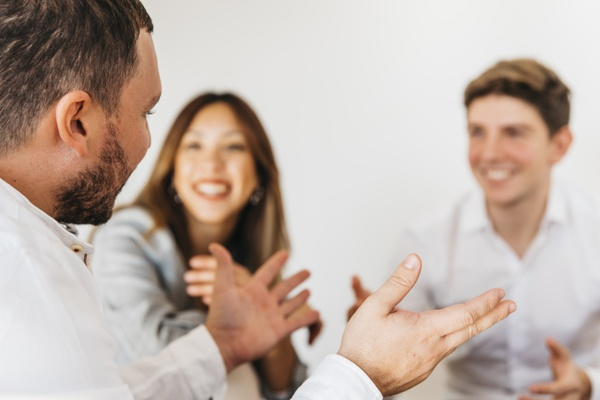
Thank you. Namaste.
Thank you.
You are the Goddess of Peace and Mindfulness. I light my candle to you. I want you all to take a deep breath from where you are. Let’s try this together. Big breath in, through your mouth blow it out. Thank you so much, Tiffany, for joining us.
—
Welcome now to Favorite Things. Favorite things are things that we think about that bring us joy. It can be an object, a photo, a song, anything that brings you happiness because the more you focus on something that makes you happy, the more that you will attract into your life. Rachel, did you bring a favorite thing that you would like to share?
Speaking about calming and being attuned to your body, I brought this Deep Blue Rub, which is an essential oil rub and there are all these different oils. It’s like Bengay but all-natural. I rub it wherever I’m feeling tension, but it’s usually the back of my neck, shoulders and low back. I can rub it anywhere and it tingles. Depending on how sore your muscles are, you can tingle for hours. It’s something that I use on a regular basis to keep my body loose and focus on those areas that are needed.
Alyssa, how about you?
I went in a totally different direction. One of my favorite things in the last decade is the musical, Hamilton. It’s back in the forefront because it’s being released on July 3rd, 2020. It was one of those that stuck with me and it was on constant rotation on my playlist. I think so much of that show, no pun intended, revolutionary. It was about a diverse cast and using hip hop music to talk about history. Who knew anything about Alexander Hamilton before 2015? I’ve been listening to it again in anticipation. I’m excited for July 3rd, 2020. It will be a family event in my house to sit down and watch this apparently high-quality production of one of their performances that they did a few years ago.
I was thinking about the lyrics and I was listening until the end. One of the Scottish sisters says, “I’m going to screw this up, but something to the effect of how wonderful it is to be alive right now.” I started thinking about that. We are living in revolutionary times. I don’t know if everyone would feel like it’s so wonderful to be alive now. It’s tough to be alive now. I think that Lin-Manuel has been this amazing force for good. I read the Wall Street Journal in their magazine, they put out an article about him and the show. I wanted to read this because I thought that it was amazing, “He is revered by schoolchildren and senior citizens alike. Like the sainted Tom Hanks, he is nearly universally regarded as an American force for good. Miranda appears to relish this role.” He has this Twitter feed where it starts with either, “Good morning or good night.” This was from June 3rd, 2020, “Good morning, check-in with the family and friends who love you. Load up on the sustenance you need for this moment, this day, this life.” I thought that’s what we try to do here on Goddesses. I’m a fan of all things he says and does. I’m looking forward to when it will come out again.
I heard about that and I’m excited too. I think I’ve seen it four times. Listening to the lyrics again is quite amazing. A lot of things that you didn’t hear when you go to see it, you’ll hear when you listen.
There was some Twitter feed where they asked all the actors from the show to put out their favorite line. Many of them are poignant and relevant now.
Dena, how about you?
My favorite thing now is hopefully helping us get organized. One of these things during the stay-at-home is our refrigerator needed to be organized. Many of us had events and we’re eating leftovers. I mentioned before that I found TikTok while being home and they have these great TikTok with amazing refrigerators. Needless to say, I now have found it and it took months to get here. They come in all different sizes. They’re plastic-y. You close it up, you put it together. It’s like a Tupperware thing that might be a square or a rectangle or a circle. It has the ability to fit into tight spaces.
What are they called?
I don’t know. There are many kinds.
Are they washable?
Yeah, you can wash it in the dishwasher. They make me happy right now.
The feeling of being organized and clutter-free, definitely you’re making room for other good to come into your life, whether it be in your fridge or in your mind. Thank you for sharing that. My favorite thing, I got this as a gift for my birthday. It’s my yoga cushion. My girlfriends gave it to me because I was telling them that when I meditate, I always sit on a pillow, and the pillow is uneven. What I love about this cushion is that it stays in its shape pretty much. It really is like a bolster. I love also the pattern. This is washable, you can take this off.
How I’ve been meditating lately, because there’s construction going on in my house, I can’t seem to find somewhat of a quiet place. What I’ve been finding is I have to go into my daughter, who is away at school. I go into her closet and I put that cushion. It’s empty because she has all her clothes with her, and I’ll sit in the closet, close the doors, put on my earbuds and I’ll meditate. It’s so comfy sitting on this cushion. I didn’t realize what you had suggested with our hands. I always have my hands up, but I will try and flip them down to become more grounded and centered. I like that suggestion.
Try it. If you’re meditating, it’s not pointed breathwork, you’re in your natural space and you might have a mudra going. If we’re long, deep breathing, if your hands are up, you start to take a couple of nice deep breaths with the palms up and you’re not getting to the bottom of your lungs.
Tiffany, what is your favorite thing?
If I’m going to pick one favorite thing, it’s Michigan and I know that’s not new, but I had a new experience with it. I grew up in Northwest Indiana and have been in this lake since I was three years old. Swimming with my dad, holding on him while he’s swimming. I live in the beaches right here. When I was there, we had all of these rains. It was bucketing down all day long. I said to my friend who lives right on the beach, “There are about twenty more minutes that the sun could be out. If we’re lucky, we’re going to get a rainbow or a double rainbow.” All of a sudden, the phone rings from someone upstairs and says, “Double rainbow out there.” I don’t know if anybody caught that. It was insane. Nature is the best thing that we have. The lake is an endless source of joy, calm and peace for me. I’m going to choose a lake because I could tell you about my cat, but he is my favorite thing too.
It’s good to have multiple favorite things. We talk about every episode, there’s always something. Even now I said, “Do you think we’re going to run out of favorite things?” We’re like, “No, we’re not,” because you’re always searching for something that brings you joy. When you find that, and then you can hold on to that or even shift if there’s something that’s maybe not joyful but you can look at the silver lining, and then it becomes joyful. That’s what’s important on Grateful Goddesses. Thank you and enjoy your day.
Thanks.
Important Links:
About Tiffany Seybert
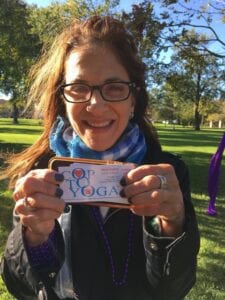
Tiffany Seybert has lived in Chicago since 1985. She has advanced Kundalini Yoga teaching credentials, and has taught publicly and privately for 14 years. Her education and professional experience is in international business, music, and liberal arts. She founded Cop To Yoga Peace Force, Inc. in 2015 as a community-based peace initiative which brings community and police together in trust and shared concerns.
Cop To Yoga unites volunteer yoga teachers with their local Chicago Police districts to guide officers through 7 minutes of breathing exercises in the roll calls. Our work neutralizes stress and provides immediate resilience and balance. Volunteers in the districts work together to create peaceful interactions in our city. The program has relationships with 17 of the 22 Chicago Police districts. Seybert was a featured panelist at the 2019 University of Chicago Crime Lab/CPD Wellness Summit, specifically focusing on resilience as one of the results of the work Cop To Yoga is doing in this city, and suburbs like Cicero, Park Ridge, and Evanston. She was one of two delegates from the 24th district who was sponsored for the Chicago Police Department Citizen’s Police Academy in November. She was also a facilitator for the ADL’s Managing Implicit Bias course, as part of the CPD procedural justice training.
